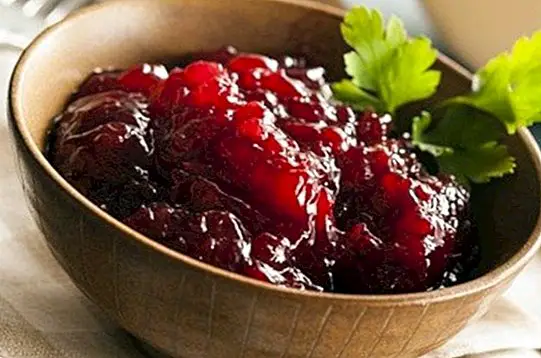Squid: benefits and most important properties
The squid It is one of those foods that are really known in many houses around the world, and also highly valued in many kitchens, since they produce a good number of delicious dishes and various recipes.
It is also known by the name of cuttlefish, and consists of a sea mollusk (belonging to the family of cephalopods) with a tentacled head, presenting in turn an ink bag (which is edible) that the squid uses at times when it tries to escape when it feels attacked. Of course, we must differentiate the adult squid from the youngest, which are known by the name of baby squid.

Where can we find it? In addition to fishmongers when it is fish, it is common to locate it in shallow waters and also in great depths, especially in the Atlantic, such as the Canary Islands or Norway. It is also possible to find it in the Mediterranean.
It is not a seasonal food, since we can find it practically all year round in fishmongers, since their catches are carried out throughout the year.
Nutritional properties of squid
High protein content
From a nutritional point of view, the squid stands out for its high content of good quality proteins, thus providing the majority of essential amino acids. In addition, it is low in fat and calories (100 grams of squid contribute only 81 kilocalories and 1.70 grams of fat).
It becomes, as we see, a very good protein source. It is, as you surely know, a fundamental element in the construction of healthy muscles and tissues.
Interesting presence of vitamins and minerals
Regarding its nutritional content, It stands out above all for its mineral content, among which we can find potassium, magnesium, zinc, phosphorus, iron and manganese. It provides vitamins, but in small quantities: especially vitamin A, B3 and B12.
In addition, it is a food with low mercury content, which we find in polluted oceans.
Low fat content
From the beginning we can highlight the very low caloric and fatty contribution of squid, which together with its content in proteins of good quality, there is no doubt that make it an ideal food in balanced and healthy diets. And of course, also in weight loss diets.
Of course, in order not to increase their fat and caloric content, it is not advisable to cook them fried or battered (the two most common methods of cooking with respect to squid), since their calories can rise to 250 kilocalories.
Its cholesterol content is somewhat high, so it advises to consume it in moderation, for example one or two servings a week are good quantities to enjoy the different benefits of squid, without posing a problem for our blood cholesterol levels.

Squid nutrition information
100 grams of squid provide:
- Energy: 81 kcal.
- Carbohydrates: 1,50 gr.
- Proteins: 15.40 gr.
- Total fat: 1.70 gr.
- Minerals:iron (0.50 mg), magnesium (28 mg), manganese (0.02 mg), zinc (1.10 mg), phosphorus (190 mg).
- Vitamins:vitamin A (77.03 μg), B1 (0.07 mg), B2 (0.15 mg), B3 (0.50 μg), B6 (0.03 mg), B9 (5.12 μg), vitamin E (2.70 mg).
Benefits of squid
High iodine content
It is an ideal food for metabolism, thanks to its iodine content, by regulating the energy of our body and the proper functioning of cells. It also helps regulate cholesterol, process carbohydrates, strengthen hair, skin and nails, and is essential for the proper functioning of the thyroid gland.
Good for any diet
Its consumption is advised in turn in people with diabetes and gluten intolerance. In addition, it can also be consumed by people who follow a weight loss diet, given that its caloric and fat intake is relatively low.
To this question we must add one more quality, and that is that thanks to its high protein intake, is a useful option in diets for its satiating power, helping to reduce appetite.
In fact, as I mentioned earlier, 100 grams of squid contribute only 81 calories.
Not suitable for people with high cholesterol
In case you have the high cholesterol squid consumption is not advised, especially and especially in amounts that could be considered as excessive.
This is due to squid is a food with a high cholesterol intake, so that excessive consumption is discouraged in people with hypercholesterolemia or with dyslipidemic disorders. This article is published for informational purposes only. You can not and should not replace the consultation with a Nutritionist. We advise you to consult your trusted Nutritionist. ThemesFoods


